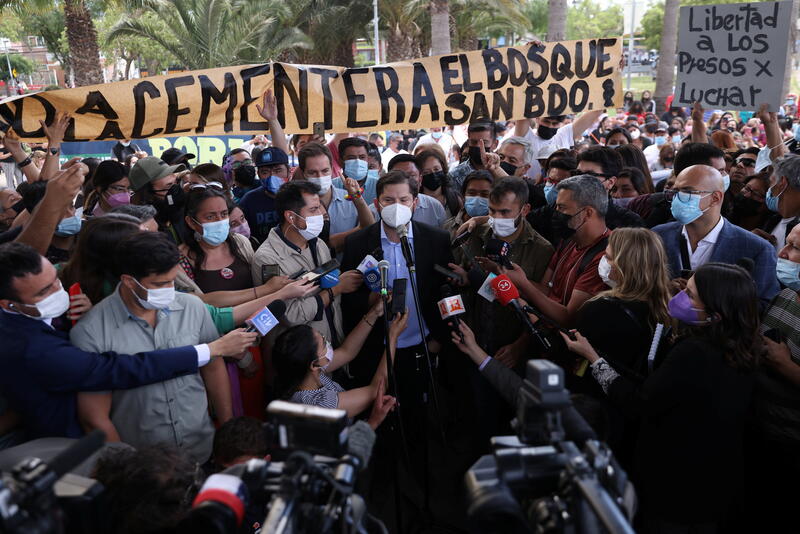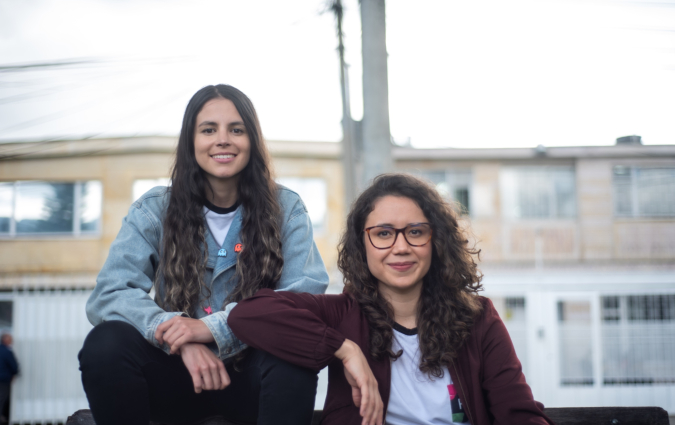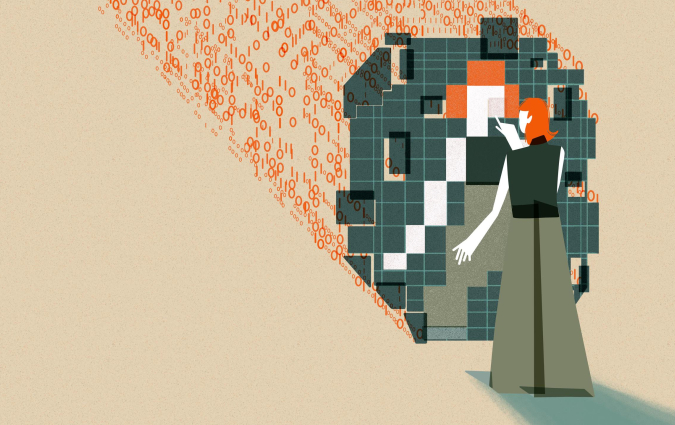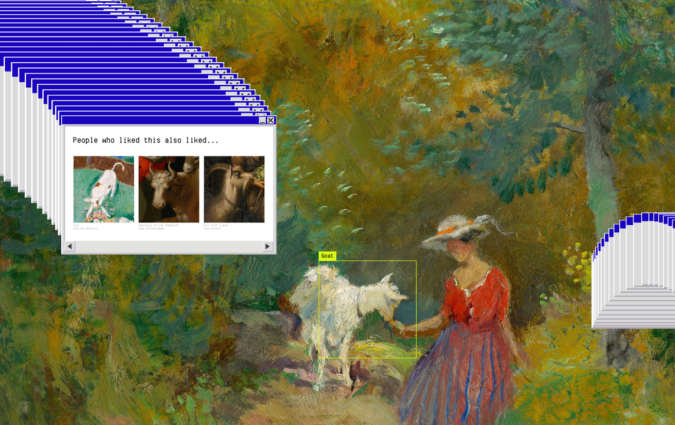Our podcast: Marking Press Freedom Day – why institutions and innovation matter

Then Chilean presidential candidate Gabriel Boric speaks to the media ahead of the second round presidential elections, in Santiago, Chile, November 30, 2021. REUTERS/Ivan Alvarado
The topic
On 3 May each year, the world marks Press Freedom Day to show support for journalists whose ability to report freely is curtailed through harassment and intimidation, physical and online threats, financial and legal pressures, as well as the stark dangers of reporting in conflict zones. The day is also an opportunity to remember those journalists who have lost their lives due to their work.
In this episode of our podcast we mark this important day by speaking to two of our Journalist Fellows, from Chile and Kenya, about the importance of a free press to a healthy, democratic society, the various threats facing journalists in their respective countries, how strong institutions underpin media freedom, and the role that innovation plays in furthering press freedom.
The speakers
Paula Molina is a Chilean journalist, radio and TV host, book author and has over two decades of experience working in quality journalism and navigating a vastly changing media environment. She is the founder of innovative digital and legacy media projects, including the Chilean podcast platform, CooperativaPodcast, and co-founded news chatbot LaBot, which received the Journalism Award for Digital Excellence, one of her country's top journalism prizes. She has also worked as a BBC News Mundo contributor since 2014.
Maurice Oniang'o is an award-winning freelance multimedia journalist and documentary filmmaker based in Nairobi, Kenya. He has written for National Geographic, the Global Investigative Journalism Network and Africa.com among others. He has produced documentaries for a range of outlets including National Geographic, Africa Uncensored and NTV Wild.
Our host Meera Selva is Director of the Journalist Fellowship Programme at the Reuters Institute for the Study of Journalism and Deputy Director of the Reuters Institute. She is an accomplished senior journalist with experience in Europe, Asia and Africa including for the Associated Press and the Independent. She is co-founder of the Oxford Climate Journalism Network and her work at the Reuters Institute includes climate change, newsroom diversity and media freedom.
The podcast
Listen on: Spotify | Apple | Google
The transcript
Read a lightly edited transcript of the conversation.
A cornerstone of democracy | Political interests and self-censorship | The role of state and journalists themselves | Threats to press freedom in Kenya and Chile | The need for constant vigilance | The role of innovation
A cornerstone of democracy ↑
Meera: Paula, let me start with you. Chile experienced really deep social unrest in 2019, and today is writing a new constitution that's quite extraordinary to watch from the outside. What role do you think the freedom of press plays in this debate?
Paula: Well, freedom of expression, the debate around a free press, it's one of the important topics of debate in the constitutional process, and I think this has highlighted some of the ongoing debates in Chile about how much we need to protect freedom of expression. But at the same time, to what extent we, as journalists, we who value journalism, should address some of our flaws as, say, communicators, and those barriers that have impeded us to fulfil our mission, in terms of diversity, in terms of inclusion, in terms of being able to really read the needs of our Chilean society and to express them in a way that can really inform the public debate. So I think those two aspects are in the debate today.
Meera: And what understanding do you think there is in the public and those playing the key roles in writing the constitution on how important the media can be, should be, because Chile has gone from an authoritarian regime with incredibly strict controls on press freedom to one that's emerging and it's now really quite vibrant and there's bits of civil society in protest movements across the country. And I'm just wondering where you see journalism fitting in there.
Paula: Yeah, that's a very interesting question because I think one of the problems for Chile was our lack of awareness, the enormous amount of problems that the society was dealing with and the need for a better and more secure health system, a more egalitarian educational system, a better provision of some basic securities. And the fact that the media was not capable to see that coming, that points, in my opinion, to a flaw in our practices that we need to address, that we can address, I think, with complete respect to freedom of the press.
But I think we also need to understand that people may not feel, or some people may need to be reassured, to understand better which is the role of the media, which is the role of the press and why it is important, a free press in the country. Because in order to understand that, I think we will have a better support for press freedom. And I'm saying this in the context of our constitutional process that is trying to better balance, of course, the freedom that is available for us as a society, but also a stronger public provision of some basic needs. I'm talking about, again, health, education, a retirement system that doesn't rely so much on the private and free market.
So in this balance between how much the estate can secure for Chilean society to be a democratic and stable nation and how important it is to value democracy, I think this is the place where our more important discussions are taking place and, of course, freedom of the press is at the centre or is part of that conversation.
Political interests and self-censorship ↑
Meera: That's really interesting to hear, thank you. Maurice, I'm going to go to you and to Kenya, which is coming at this issue from a very different way. You've got Article 34 of the 2010 Constitution that guarantees freedom of the press, but is that the reality on the ground? What's going on?
Maurice: Thanks a lot. Maybe if you allow me, I'd just like to make a comment about Chile's constitutional process and what they can learn from Kenya. Of course, freedom of the press in Kenya is not at the place where we want it to be, but one thing they can learn from our process, because when you talk about the constitutional process, they might forget that media freedom being included into that constitution itself would play a very big role. Because in the Kenyan context, freedom of the media is included/enshrined in the constitution. That helps a lot in us securing some of the freedoms that we now enjoy and having a vibrant media.
And just to respond to your question, the reality on the ground is not what is enshrined in the constitution, because we face some challenges as the media in the country. And some of these challenges that we face that now bring a problem to our freedoms including political influence on both private and state media because we have political interest in ownership of the media companies, and all that. We also have business interests and marketing interests that make it … There's some sort of self-censorship by media organisations and some journalists because they don't want to jeopardise their income because of advertisers or to make some people in government angry or some political people angry.
So those are some of the challenges. And, also, there's very slow investigations that have been happening with regards to journalists who have been attacked or persecuted. So we haven't seen much investigations going into that or anyone being charged with that. Also, there's issue of police and security forces confiscating equipment from journalists or beating up journalists; we've seen that happen. Especially during the pandemic period, the corona pandemic period, we saw videos of police beating journalists and pushing them away from – stopping them from doing their work.
And we didn't see much happening with regards to them being prosecuted or taken to court because they were stopping journalists doing their work, which is a protected right according to our constitution. So, yes, we have the Article 34 that protects the freedom of the media, freedom of the press, but the reality on the ground, we are not where we are supposed to be.
Meera: And why do you think there's such a gap between what's written down and what happens on the street?
Maurice: I think the biggest challenge maybe would be interests, and for me it's political interests and business interests, because most of the media companies and the ownership of the media companies plays a big role in how we exercise our duties as journalists. So, for instance, you're doing an investigation and then it touches on someone who has a particular political inclination that favours the owner of that media, you see, going to press with that is not something that happens. So one of the biggest problems that we face is interests and ownership.
The role of state and journalists themselves ↑
Meera: And, Paula, you touched on this really – the pact between the journalists and the public has got to be clear and transparent, and it hasn't been and it isn't in many countries. And listening to Maurice, what do you think you would like to see in Chile to make sure these kind of freedoms are protected and are upheld?
Paula: Yeah. I think, as Maurice points out in the Kenyan constitution, the inclusion of press freedom in the Chilean constitution, which is something that has been discussed and has been approved in the constitutional convention that is writing the new constitution in Chile, is very important. I think the debate today is in terms of to what extent, and if, the state should have a role in ensuring diversity and plurarlity in, for example, media ownership. And I think there are problems, there are challenges in media ownership, and they are everywhere in the world now. In the case of Chile, the National Journalism Award, María Olivia Mönckeberg, she has described the media system in Chile as a room with closed curtains; there is a lack of transparency.
We will benefit for more information just in terms of how do we practice journalism and in which way the ownership, the interests of the media owners and the journalists is effectively separated. For example, that could be something interesting. But having said so, the idea of the state taking a more active part in the media system, as we have seen all around the world, is a tricky one, no? It can lead to the suppression of press freedom because the state – and, again, we have seen it in so many places in the world – it may take these measures that have been approved with maybe the best of intentions, but end up being used to crush the press, no? And I think the same thing happens through those measures that try to stop 'fake news', for example, so-called 'fake news' or misinformation.
So I think we need to be very, very careful in Chile. But, again, I think the protection, a strong protection of press freedom needs to also address our faults, and needs us, I think, to express a public commitment to really serve the society that is securing the freedom of the press.
Meera: There's one thing I say on the Journalist Fellowship Programme and to journalists generally is you have to advocate for yourself. And that's not the same as campaigning or advocacy, but being clear about why you do what you do, how you do it, and how the system works, and how the process works, and how important it is for the functioning of a healthy society is something that needs to be said outright quite often. Maurice, do you want to address Paula's points? The two things I think are really interesting is the role of the public in helping protect press freedom because they value it, and then, as Paula very rightly pointed out, journalists also need to be truly honest about themselves and take a critical look at their own practices because if they don't, they can't ask other people to defend their work if they can't defend it themselves.
Maurice: Yes, that's very true because we've seen the times that journalists have been attacked or anything has happened to a journalist, we've seen a public outcry that people came out and spoke in numbers and say that, "We need to protect journalists because they are the people who give us information about what's happening, and this is a constitutional right; they should be left to be doing their job." So we enjoy a relatively good backing from the public, which helps a lot in the protection of our freedoms to practice as journalists in the country.
Threats to press freedom in Kenya and Chile ↑
Meera: And where do you think the dangers might lie? I suppose the question I want to ask both of you is you've both highlighted different ways journalism, as a system, can be undermined, and that's through police actions, legal actions. But I would like to know which journalists or which kind of journalists in your countries do you feel are under threat, do come under physical and legal and online pressures that are deliberate, that are done deliberately to try and stop them reporting. Maurice, go ahead.
Maurice: Thank you. Yeah, so in our context, the journalists that I see being attacked most of the time are people who cover politics and, also, journalists who do investigations. We've seen journalists being beaten by politicians sometimes, being slapped by politicians or sometimes –
Meera: Being beaten by the politicians themselves, not the security guards, this is?
Maurice: Yes, and being pushed, shoved away by the guards or sometimes even a journalist being beaten by supporters of a political party. We've seen instances in Kenya, especially now it's a political campaign season, we've seen journalists being pushed. A case happened, I think less than four weeks ago, where some journalists were kicked out of the office of a political party because they were perceived to be from a media that supports the other political presidential candidate. So we see this happening as well in Kenya. And the good thing is people come out to defend the journalists when it happens, so there's that awareness that we need to leave these people to do their jobs.
Meera: Thank you. That's impressive that people do defend the journalists in these situations, but also quite extraordinary that the politicians themselves are slapping the reporters.
Maurice: There's one very prominent case of the time one of the presidential candidates, in a press conference a journalist asked a question and then when he asked him, "What's your name?" and then he said his name, and he said, "I know why you've asked that question," because there's a perception that people from that region support this other candidate. So the politician did not respond to the question because he assumed [the journalist] is asking that question because he comes from the tribe of the other presidential candidate. It was crazy.
Meera: Wow. OK, yes, this is the kind of thing that shows journalism can be undermined from the top very effectively, and that's one of the most dangerous situations to get into. Paula.
The need for constant vigilance ↑
Paula: Yeah, I would like to, well, besides to condemn all these practices that abuse or present a threat to journalism. In the case of Chile, the country experienced, as you said, Meera, decades of abuses and restrictions on freedom of expression and journalistic work that could put people's safety and lives at risk, like journalists who lost their lives trying to inform and some who risked a lot in the process. And I think that, as a Chilean media, we need to take responsibility for that history; we need to make an explicit commitment, as I said before, to the values that were run over then, that were crushed by the military dictatorship. And at the same time, I think we need to keep our eyes open about how human rights, of course, in general, and press freedom should be protected, and journalists need security to fulfil their job.
And in that, it was very disturbing what happened during the 2019 protests because we had so many complaints of mistreatment of journalists, cases that were highlighted by the National Institute of Human Rights in Chile and that, in many cases, affected journalists who were there doing their job. We have some very concerning revelations of spying on journalists who've been investigating the military forces and that need to be addressed. And those things also create worry in Chilean society. But I think we need to be very well aware of those threats because there is not such place where, sadly, human rights abuses leave lessons that last forever. I think that the commitment around human rights, it needs to be a permanent one, a daily one, because, if not, even the worst and most tragic moments of history may be repeated.
The role of innovation ↑
Meera: Thank you. That's the need for absolutely constant vigilance which we see in many countries around the world. Let me end with a question about going forward. What do we do going forward? Paula, you talk about innovation and you believe that innovation can play a role in strengthening press freedom that I really want to ask you about. And, Maurice, in particular, where do you see the younger generation's relationship with the media? Do you think, again, they will be willing to stand up for it, do they value it, do they use it, and what do journalists need to do to make sure the needs and interests of this younger generation are met through journalism, as well? But, Paula, can I start with you and innovation?
Paula: Yes. I think innovation should be, well, our permanent attitude; it should be the way that we, as journalists, should wake up every day – to think, "How can I make my work a better quality work, a more useful work, a work that can really contribute to the public debate, inform citizens to strengthen democracy?" And that takes a lot of effort, that takes a lot of imagination sometimes; you need to find new solutions for all problems, you need to try to find new ways to reach your audience, to think, "Where is the audience? Where can I reach the people that I think, that I believe will benefit from my work, from the information I'm collecting? And I need new ways to collect information to make our work worthy." I think that's important. Innovation plays such an important role on that.
I think we need to have a more innovative attitude. We need more innovation in Chilean media. And we have seen that, in many cases, when there is innovation, there is also a better addressing of gender issues, for example, when there is innovation, there is a better addressing of social inequalities, which is such a huge problem in Chile. So I think my hopes around the media go in that direction, and I think it's been important. In the case of LaBot, the news chatbot that we founded with journalists, Francisca Skoknic and Andrea Insunza … I'm not part of LaBot anymore, but it's doing such a great job in, for example, informing about the way the constitutional process is taking place and trying to simplify and to better convey and express the complexities of writing a new constitution. And I think that's a very good example of how innovation can help us as media as a whole.
Meera: Brilliant, thank you very much. And Maurice.
Maurice: I think what gives me hope about our situation and stronger press freedom in the country is the fact that there's a realisation among the young people that we need a press that is free. Press freedom has to be protected for the sake of having stronger institutions in the country, for a stronger judiciary, to keep in check government and also parliament, and there's that realisation from the younger people. So they come out in numbers to defend the media space, the journalists when they are under attack by anyone. So that is what gives me hope.
And also what gives me hope in our press freedoms is the fact that it is enshrined in the constitution and, also, the judiciary upholds that. Because I remember in 2018, there was a time that the government shut down four TV channels, four media stations because they covered an event that was done by the opposition leader. And after a few days when they went to court, the court suspended the ban and the government had to bring back these media stations to continue broadcasting. So that is what gives me hope; there are stronger institutions and the fact that young people realise that press freedom has to be protected for the betterment of the country.
Paula: Can I add something to what Maurice says about the importance of institutions?
Meera: Of course.
Paula: The importance of an independent justice system.
Meera: Please do.
Paula: It is also so important, so relevant, and I think the fact that in Chile in the cases where journalists have paused these [revelations] about either abuses or threats over spying, justice has taken care of them and justice needs to make people accountable for those threats. Because, as Maurice says, we need those institutions to do the work. And I would also like to add a tiny thing about innovation. I mentioned new media, but I think traditional legacy media also can benefit a lot from innovation. I'm thinking about the radio that I work for – Cooperativa – and also the podcast area that we created there and how podcasts have allowed us to include more diversity of voices, more women, we are reaching younger people. So there is also this space for innovation, and it's so important all across the media. New media, legacy media, traditional media, we can all benefit from it.
Meera: Absolutely. Thank you. Thank you both for joining us today.







